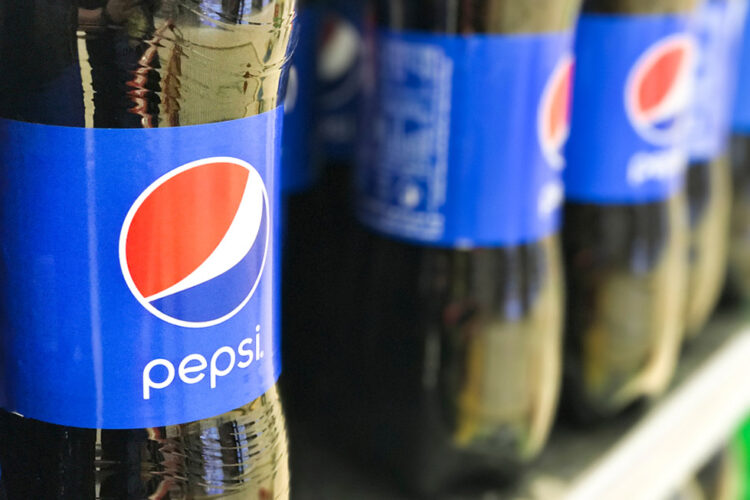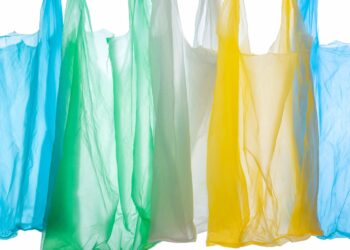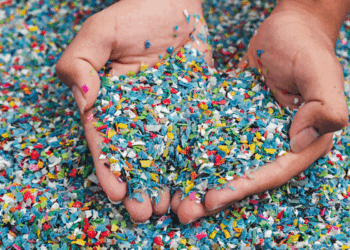Under current New York law, PepsiCo can’t be held legally responsible for consumers improperly disposing of its packaging, a state supreme court judge has ruled. And now, a California court will test similar legal theories.
New York judge: Lawsuit constitutes ‘policy idealism’
Last week, the New York State Supreme Court sided with PepsiCo and dismissed a case alleging that PepsiCo and its subsidiary Frito-Lay were “harming the public and the environment with its single-use plastic packaging.” The lawsuit focused on pollution in the Buffalo River and nearby waterways.
Among other points, Judge Emilio Colaiacovo wrote that “imposing civil liability on a manufacturer for the acts of a third party seems contrary to every norm of established jurisprudence.”
The judge rejected the notion that manufacturers are responsible for the litter their products can potentially become.
“As Defendants rightly note, there are recycling bins everywhere along canalside and the other water tributaries highlighted by the Attorney General,” Colaiacovo wrote. “Yet, people continue to litter. Instead of pursuing those who commit the act, the Attorney GeneraI wishes to penalize those who produce the discarded item. This theory has never been adopted by a court in this state or any other.”
The judge also rejected the notion that PepsiCo failing to meet its own PCR goals constituted fraud or materially misleading statements to the public. And, ultimately, the judge found that the plastic reduction and PCR goals didn’t have any bearing on the matter at hand.
“It is important to note that regardless of Defendant’s aspirational goals, Pepsi/Frito Lay did not pollute the Buffalo River or any other local waterways – other people did!” Colaiacovo wrote. The ruling added there was “no way of knowing” if different warnings or virgin plastic reduction would prevent products from being similarly discarded in the river, concluding that “the Attorney General’s allegations are speculative.”
The ruling bluntly displayed the limits of using the judicial system to reduce plastic pollution, and plainly stated that the legislative system is the proper venue for such actions.
“Absent the legislature passing a law or the executive branch issuing an order establishing such a theory of liability or imposing restrictions on what type and amount of plastic can be used, this lawsuit is simply policy idealism,” Colaiacovo wrote.
In a statement to Plastics Recycling Update, a PepsiCo spokesperson said the company is “pleased with the Court’s ruling in favor of our motion to dismiss the New York Attorney General’s case. We believe that our time, attention and resources – and those of other key stakeholders – are best directed toward collaborative solutions.”
New York State Attorney General Letitia James filed suit against the company nearly a year ago.
Broadly speaking, the lawsuit sought to hold PepsiCo accountable for its packaging polluting the environment, specifically the Buffalo River. It didn’t accuse PepsiCo itself of polluting the river, but said the company should be liable for its products being improperly disposed of by consumers.
The lawsuit laid out a case that PepsiCo’s packaging activities violated public nuisance laws and that the company failed to warn consumers of the dangers plastic packaging can pose to human health and the environment through pollution.
It also accused PepsiCo of violating prohibitions on deceptive acts or practices in business, pointing to the company’s public statements expressing concern for its environmental impact, contrasting with the company’s failure to meet its own goals on plastic reduction and PCR use.
PepsiCo’s attorneys argued the company’s products were safe and lawful and that the company couldn’t be held responsible for the “independent decisions” of third parties, such as consumers, who choose to improperly and unlawfully dispose of the products. The company argued it didn’t have a “duty to warn,” because polluting the river was not the intended purpose of its products.
“Defendants take issue with being singled out by the Attorney General’s overreach to accomplish a public policy objective by extra-judiciaI means,” PepsiCo’s attorneys wrote.
In its statement, the company added it “remains serious about plastic reduction and effective recycling. We will continue to collaborate with key partners to advance smart material collection policies, improve recycling infrastructure, boost consumer awareness about the importance of recycling and establish partnerships focused on reducing waste and exploring innovative solutions to plastic pollution.”
Los Angeles lawsuit takes a familiar angle of attack
Across the country, Los Angeles County filed suit against PepsiCo and The Coca-Cola Company on Oct. 30 – one day before the New York dismissal – making similar legal arguments.
In a legal brief, Los Angeles County Counsel Dawyn Harrison said the two brand owners and multiple beverage bottlers “have littered the County of Los Angeles with their plastic bottles and engaged in a disinformation campaign to make consumers falsely believe that purchasing their products in single-use plastic bottles is an environmentally responsible choice.”
Citing plastic pollution in the Los Angeles River and other local waterways, the lawsuit accuses the defendants of public nuisance stemming from the plastic pollution in public areas. It also accuses them of deceptive practices and misleading advertising, claiming the companies are misrepresenting the hazards of single-use plastics and the ability of recycling to offset environmental risks.
Among other points, the lawsuit argues the brand owners misled the public into believing that “recycling is economically viable,” and that “chemical recycling is effective.”
The lawsuit asks the court to require the companies to “abate the public nuisance,” stop using deceptive practices and misleading advertising and pay restitution.
Spokespersons for PepsiCo and Coca-Cola did not respond to requests for comment on the Los Angeles lawsuit by press time.





























